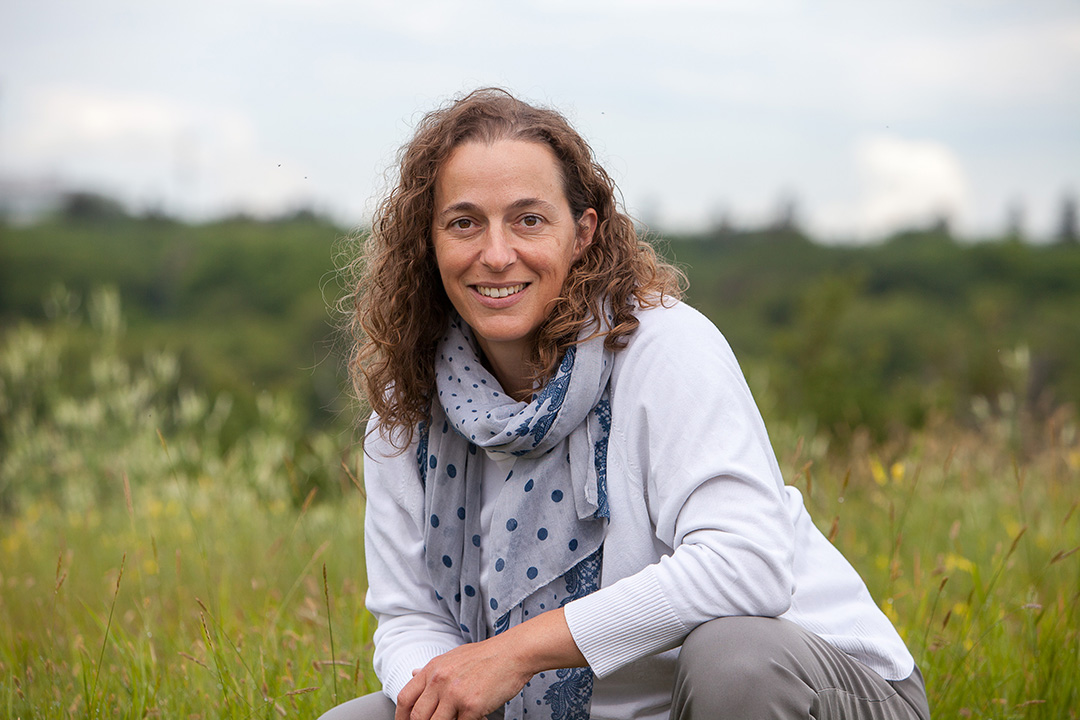
Bedard-Haughn excited to take leadership role
Despite beginning her term as dean of the College of Agriculture and Bioresources (AgBio) during a global pandemic, Dr. Angela Bedard-Haughn (PhD) is looking forward to the challenges of the fall semester.
By Kira Glasscock“Seeing how hard our instructors have been working to prepare over the summer, I’m actually really excited about the year ahead and optimistic that we will all emerge from these strange times with a much larger and more diverse teaching toolkit to support all kinds of learners, including those who choose to study remotely even outside of a pandemic,” said Bedard-Haughn, who officially began her five-year term as dean on Aug. 15.
Bedard-Haughn began teaching and researching at the University of Saskatchewan (USask) in 2006, earning the Provost’s Outstanding New Teacher Award in 2010, along with Dr. Jay Wilson (EdD). Early in her career, taking on the challenge of being dean wasn’t part of Bedard-Haughn’s plans.
“Like many junior faculty members, my early years were focused on teaching and building my research program, not on administrative aspirations; but through a few key committees and admin opportunities, I gained a new appreciation for the complexity of the college and the university at the macro level,” said Bedard-Haughn. “I got excited about the opportunities I could see and wanted to be part of turning those opportunities into action.”
Over the next year, Bedard-Haughn plans to focus on providing a positive learning environment for students, both at the undergraduate and graduate level.
“AgBio places a high priority on hands-on learning, but that’s pretty challenging in the age of COVID-19,” she said. “The college will do everything it can to make sure our instructors, teaching assistants and students have the tools and supports they need to make the best of this situation.”
Another priority of Bedard-Haughn’s for the year is to stay engaged with stakeholders.
“When we can’t gather in person, this will require more creativity and a concerted effort, but it is just so important,” said Bedard-Haughn, who earned bachelor’s (1998) and master’s (2001) degrees at USask and her PhD (2004) at the University of California, Davis. “Our current and prospective students, our industry, government and NGO partners, our alumni and our many community partners—rural, urban, remote—they need to know that AgBio is still working hard to provide the teaching, research and outreach that they need and deserve.”
While COVID-19 has created some hurdles, Bedard-Haughn is looking forward to working on longer-term goals like continuing the work the college has done with curriculum renewal.
“I want to keep that momentum and move forward with renewal, incorporating some of the lessons we have learned in the last six months to think about not just what we teach but how we teach,” said Bedard-Haughn. “What do we miss the most about the ‘old normal’ and what have we learned that we want to incorporate into the ‘future normal’?”
For Bedard-Haughn, it is important to “take a close look at our training programs to make sure we are still delivering on our promises to our future leaders.”
Over her term as dean, Bedard-Haughn also plans to grow the college’s collaborative research ecosystem. She has learned from her own research projects that “when you collaborate, collectively you see solutions you wouldn’t necessarily have seen on your own.”
“Through industry, government, and community partnerships and interdisciplinary collaboration, we can tackle larger and more complex challenges and access a wider range of resources, both intellectual and financial,” she said. “This will drive our research to new places as well as provide exciting training opportunities for our students.”
Having grown up in rural Saskatchewan, Bedard-Haughn has always had a connection to agriculture and the land.
“When you grow up on a farm you have a profound appreciation for how farmers are stewards of the land and animals,” she said.
When asked why agriculture is important to her, Bedard-Haughn refers to the college’s mission to advance the responsible use of land, water and bioresources to provide products and services that enhance the quality of life for the people of Saskatchewan and around the world.
“This is why agriculture is important to me,” said Bedard-Haughn. “When I interviewed for this job, I referenced a quote: ‘Farming is a profession of hope.’ Each seed that is planted, each calf that is born, each harvest that is hauled to the terminal, all require hope. Like farming itself, the mission of AgBio is steeped in hope, of returning to the fields each spring, of finding ways of living with and on the land in a productive partnership, ways that nourish and sustain not just this generation, but many generations to come.”

